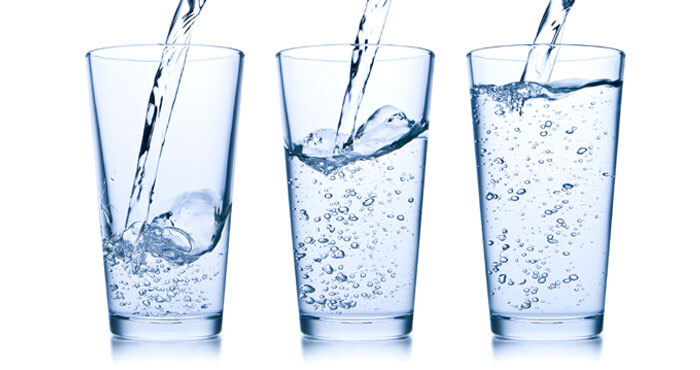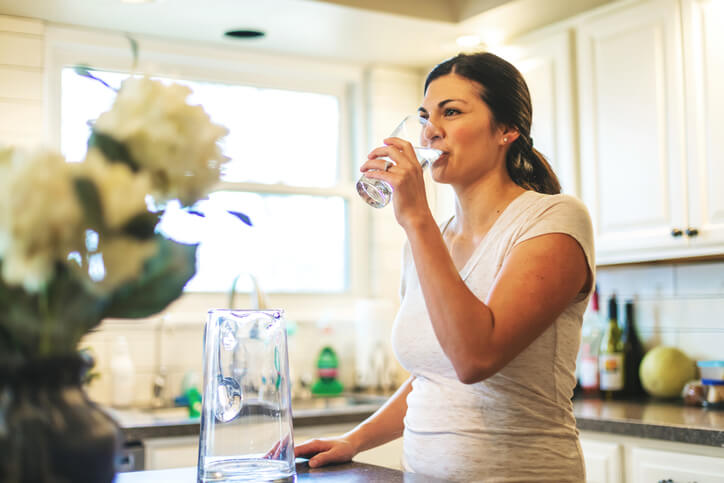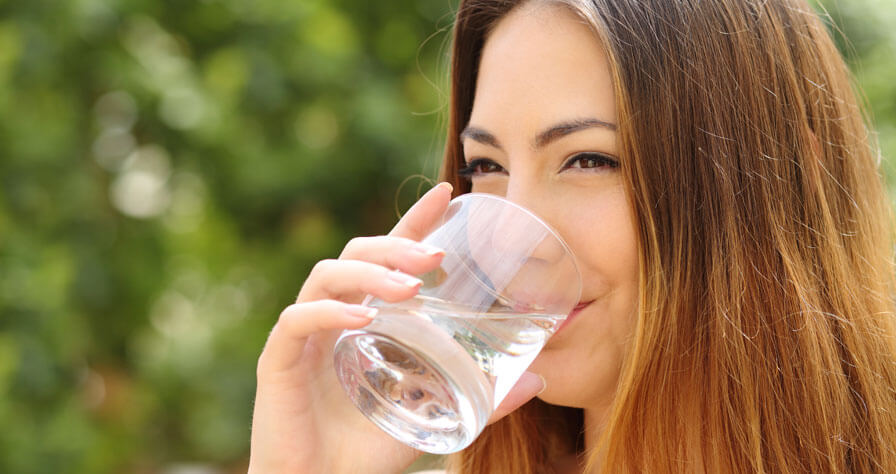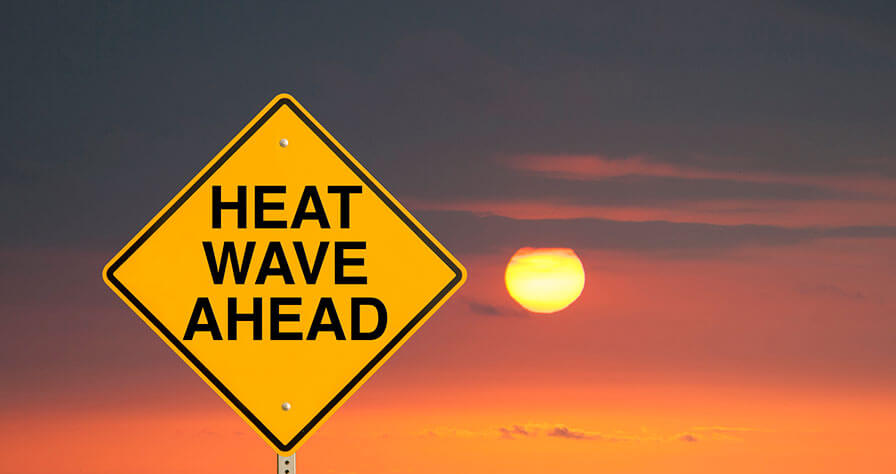Heat, Headaches & H2O

One of the more common causes of headaches is dehydration. Dehydration is the loss of water and electrolytes, such as sodium, chloride and potassium, which are necessary for your body to function.
The main cause of dehydration is not drinking enough water. Early symptoms of dehydration include thirst and minor discomfort. Symptoms can progress to headache, fatigue, muscle cramps and more dangerous heat-related illnesses. Typically, there’s also a decrease in urine output and your urine is dark or amber in color.
How to prevent dehydration
- Drink plenty of water. Don’t wait until you’re thirsty; drink water throughout the day. Aim for 8-10 glasses each day. Electrolytes are also lost through sweat and play an essential role in water retention. Add some electrolyte powder to your water or sip on a sports drink.
- Fill up on fruits and veggies. Fruits and vegetables are easy to digest and many are high in water content. For example, a watermelon is 92 percent water and lettuce is 95 percent water. Enjoy a summer salad or snack on summer fruits. Also include plenty of potassium-rich foods in your diet, including bananas, pineapples, coconut water and mangoes.
- Avoid or limit alcohol. Alcohol is a diuretic. It causes cells to shrink, which squeezes water out of your body (remember all those trips to the bathroom). That’s why you might wake up with a pounding headache the morning after a big night out. If you do drink, be sure to drink plenty of water before, during and after.
- Cut back on caffeine. Caffeine is also a diuretic. Limit or avoid caffeinated beverages such as coffee, cola or energy drinks. These may seem to quench your thirst but actually dehydrate you faster.
- Stay out of the sun. On extremely hot days, limit outdoor work or exercise to the early morning or evening. If you feel dizzy, lightheaded, or tired, head indoors and drink plenty of water. Check out these warning signs and symptoms of heat-related illness.



